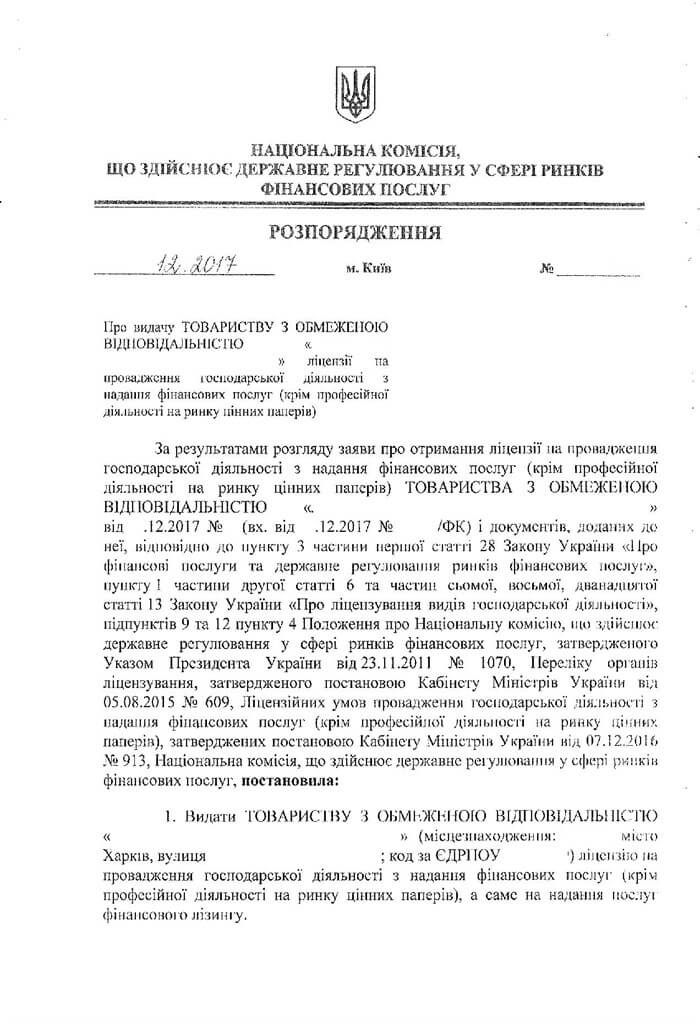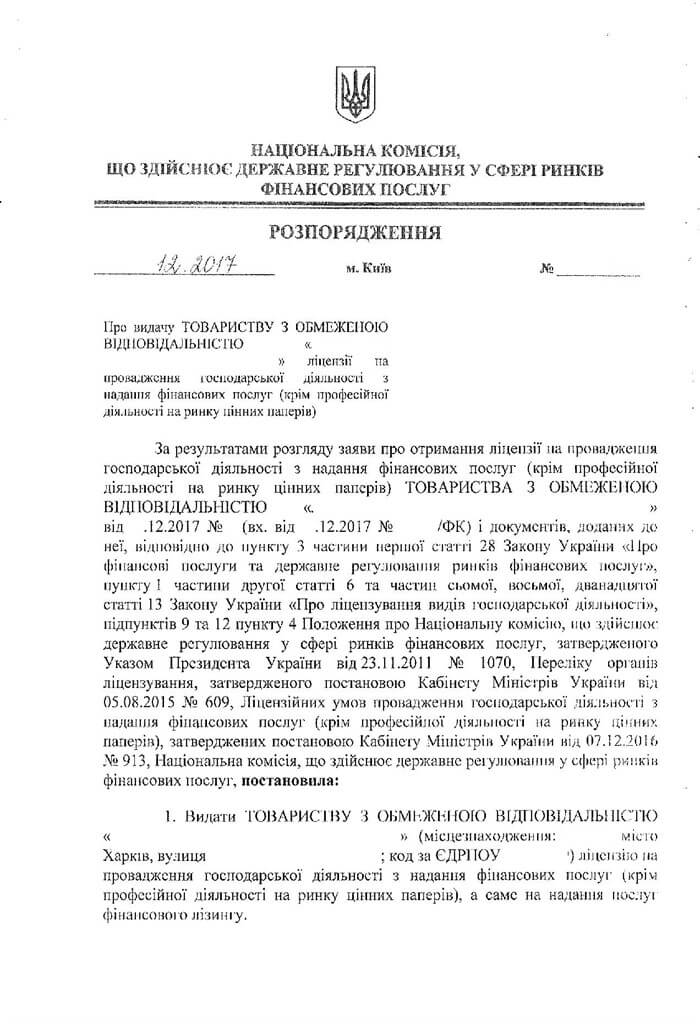Confirmation of company's solvency as precondition of license issuance
Cost of services:
Reviews of our Clients
... our work on joint projects assured us of your high level of professionalism
Laws and regulations governing the licensing procedure stipulate that the package of documents to be submitted for obtaining the license for any type of services shall contain the proof of company’s solvency. Such types of services are often planned to be provided by business entities that do not have a significant experience of doing business. For example, newly created enterprises or other economic entities for these purposes. How can such a business entity prove its financial solvency for the state authority that issues licenses?
Let’s take the licensing procedure of the National Commission For The State Regulation Of Communications And Informatization (the National Commission) as an example. Paragraph 4.5 of Article 32 of the Law of Ukraine “On Radio Frequency Resources of Ukraine” of 01.06.2000 stipulates that the application for a license shall be accompanied by the documents confirming the financial and staffing ability of the applicant to use the radio frequency resource. Licensing regulations for the use of radio frequency resources of Ukraine, approved by the decision of the National Commission No. 53 of 19.08.2005, also require confirmation of the financial ability of a business entity (a licensee) to use radio frequency resource (paragraph 3.1). The key point is that Appendix 5 to the Licensing Regulations determines the documents confirming the financial solvency of the future licensee. Accordingly, the legislative body clearly defines the documents confirming the solvency of the license applicant.
Pursuant to Appendix 5 to the Licensing Regulations, the applicant shall provide duly certified copies of the following documents:
- The auditor’s report on the company’s financial activity for the previous year;
- Balance Sheet according to Form No. 1 for the previous financial year;
- Bank guarantee or investment agreement.
According to the note to Annex 5, economic entities that have been operating in this field for more than a year shall provide only a copy of the financial balance sheet with relevant annexes.
Based on the aforementioned list of documents, it is clear that all these requirements concern a business entity that carries out financial and economic activities and has the relevant results. Thus, it can be assumed that the license can be obtained only by a business entity that can confirm its performance indicators for the previous year. The motives of the legislative body are clear. A potential licensee needs to have financial resources to pay the license fee, employees’ salaries, rent or purchase of equipment and premises. However, one may legitimately ask: what should a newly established company do in this situation? A new business entity has neither balance sheet for the previous year, nor the relevant audit opinion.
The law leaves room for manoeuvre in the last paragraph of Appendix 5 to the Licensing Regulations. It states that the applicant has the right to provide other documents confirming its solvency.
Such documents may be an investment project or financial plan. They should describe in detail the company’s intentions regarding the attraction of funds from various sources. These may be bank loans, investments of partner companies, the expected increase in the authorized capital at the expense of the the founding members or several such components. Each of these points shall be documented. Information about the loan will be confirmed by a bank certificate on the granted loan. The license applicant’s partners can provide the applicant with a financial repayable support under the relevant agreement, the copy of which shall be included into the main package of documents. The company’s founding members may draw up a declaration of intent. It should indicate the shares, amounts and terms of replenishment of the authorized capital, as well as the purposes for which the funds will be spent. A copy of the agreement will also be a part of the investment project.
The total amount of funds raised should be sufficient to cover the license fee and ensure normal business activities of a business entity.
The prepared documents will help to form a full package of information required by the licensing authority and should convince it of the effective organization of the applicant’s financial and economic activities and, as a result, positively resolve the issue of obtaining a license.
Thus, the legislative body has not determined a mandatory list of documents confirming the solvency of a business entity. Accordingly, the laws and regulations governing the licensing procedure allow applicants to prepare any list of documents confirming the company’s solvency.













